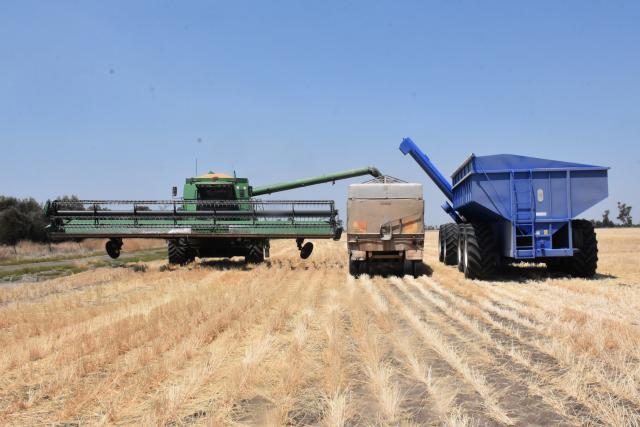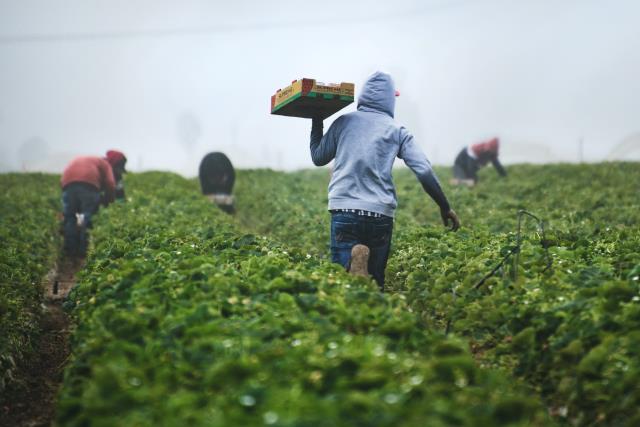THE Federal Government’s industrial relations decisions are a “millstone around the neck” of Australian producers and will bring horticulture in the Mallee to its knees, Member for Mallee Anne Webster says.
But the government has argued farmers have been asking for the labour-hire system to be “cleaned up”.
Dr Webster toured the Sunraysia and Swan Hill regions last week with Opposition trade and tourism spokesperson Kevin Hogan, meeting with horticulture industry members who relayed their concerns.
“The common theme communicated by these hard-working producers, whether of table grapes, wine grapes, dried fruit or citrus, was the shortage of workers and the new labour demands and restraints,” Dr Webster said.
She said the government’s moves were “driving down production and making fruit and vegetable businesses unviable”.
Dr Webster said the “same job, same pay” policy, stipulating a minimum 30-hour working week, threatened the viability of initiatives such as the PALM scheme, by paying workers the same whether they worked or not.
She said employers were ready to walk away from the PALM scheme due to cost and red tape.
“It is seasonal work depending on the weather and a myriad of other factors,” Dr Webster said.
“It isn’t consistent, but these rules will force employers to pay as if it were – even if weather prevents workers going on site.
“Labor’s changes presume the sun shines every day and that it rains only when you want it to.”
Agriculture Minister Murray Watt last month defended the same job, same pay laws.
“I don’t actually think that they’ll have a direct impact on farmers,” he told the ABC.
“In fact, to their credit, a lot of the farm groups have been telling me that they want to see the labour-hire system cleaned up.
“They know that to attract people to work in agriculture, making sure that it has a reputation as a good place to work is important.
“If we can crack down on some of those rogue labour-hire operators who are undercutting pay, then that’s actually a good thing for the agriculture sector, as it is for the wider economy.”
Dr Webster said productivity would be impacted if the workforce was not affordable and there would be further damage to the competitiveness of exports.
She also took issue with the government raising the working holiday maker visa from $510 to $640 and their refusal to rule out limiting the visa to one year.
Another concern was the government raising the wage floor for temporary skilled migrants from $53,900 to $70,000.
“I raised this issue in March,” Dr Webster said.
“At the time, Productivity Commission deputy chair Alex Robson mooted this increase, as well as an increase to $85,000 for permanent migrants, on the back of recommendations only made by the Grattan Institute. No further or wider consultation was made.
“Labor was warned that this would devastate regional Australia and certain sectors by the National Farmers’ Federation, Clubs Australia, the Hotels Association, the meat industry and child care, but they have done it anyway.
“This is a market intervention and wage increase across the sector by stealth – if businesses can’t afford to pay a workforce then there will be no jobs for anyone.”
The government was contacted for comment.
Mr Watt last month said there had been “a lot of frustration … for many years” about workforce shortages.
“We’ve obviously taken a lot of steps since coming to office to try to address that by funding fee-free TAFE places for locals to take up careers in agriculture, and we’ve actually now got a record number of Pacific Island workers in Australia – more than we’ve ever had before,” he said.
















